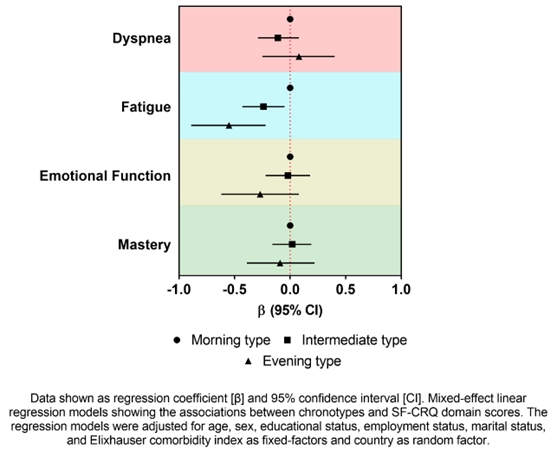Abstract
Background: Recent studies have shown links between circadian typology/chronotype, and asthma. However, whether health-related quality of life (HRQL) in asthma varies according to chronotype is unknown.
Methods: In this multicentre, cross-sectional study, we recruited adult participants with asthma from Canada, India, New Zealand, and UK. All participants completed a questionnaire containing items of demography, anxiety, depression, sleep quality, alcohol consumption, comorbidities, and medication adherence. HRQL was determined using the short form of chronic respiratory questionnaire (SF-CRQ). Chronotype was measured by the reduced morningness-eveningness questionnaire (rMEQ) and stratified as morning (n=300), intermediate (n=306), and evening type (n=67) based on cut-off values of total rMEQ scores >17, 12-17, and <12, respectively.
Results: We obtained 691 participants in this study (meanąSD age: 49ą17 years, 58% female). In a mixed effect linear regression model adjusted for potential confounders (country as random factor), we observed that being evening-type was associated with a higher fatigue score (?: -0.55; 95%CI: -0.89, -0.22) in the same way as being intermediate-type although to a lesser extent (?: -0.24: 95% CI: -0.43, -0.05) compared to morning-type. We also found that the association between chronotype and fatigue score was mediated by poor sleep quality.

Conclusion: Evening chronotype was associated with poorer HRQL in asthma.